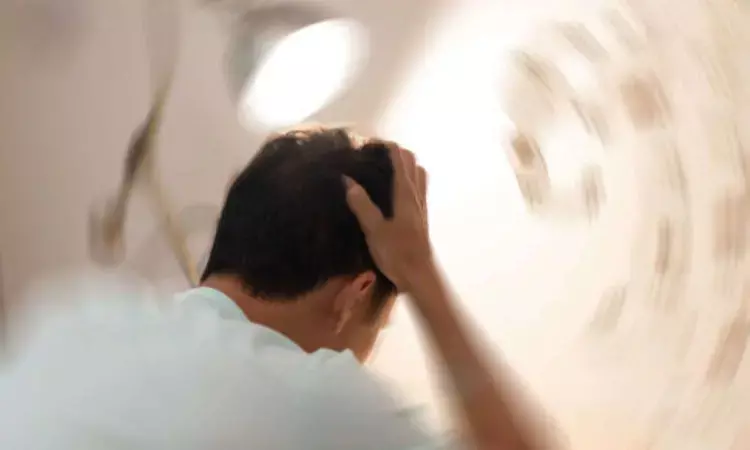- Home
- Medical news & Guidelines
- Anesthesiology
- Cardiology and CTVS
- Critical Care
- Dentistry
- Dermatology
- Diabetes and Endocrinology
- ENT
- Gastroenterology
- Medicine
- Nephrology
- Neurology
- Obstretics-Gynaecology
- Oncology
- Ophthalmology
- Orthopaedics
- Pediatrics-Neonatology
- Psychiatry
- Pulmonology
- Radiology
- Surgery
- Urology
- Laboratory Medicine
- Diet
- Nursing
- Paramedical
- Physiotherapy
- Health news
- Fact Check
- Bone Health Fact Check
- Brain Health Fact Check
- Cancer Related Fact Check
- Child Care Fact Check
- Dental and oral health fact check
- Diabetes and metabolic health fact check
- Diet and Nutrition Fact Check
- Eye and ENT Care Fact Check
- Fitness fact check
- Gut health fact check
- Heart health fact check
- Kidney health fact check
- Medical education fact check
- Men's health fact check
- Respiratory fact check
- Skin and hair care fact check
- Vaccine and Immunization fact check
- Women's health fact check
- AYUSH
- State News
- Andaman and Nicobar Islands
- Andhra Pradesh
- Arunachal Pradesh
- Assam
- Bihar
- Chandigarh
- Chattisgarh
- Dadra and Nagar Haveli
- Daman and Diu
- Delhi
- Goa
- Gujarat
- Haryana
- Himachal Pradesh
- Jammu & Kashmir
- Jharkhand
- Karnataka
- Kerala
- Ladakh
- Lakshadweep
- Madhya Pradesh
- Maharashtra
- Manipur
- Meghalaya
- Mizoram
- Nagaland
- Odisha
- Puducherry
- Punjab
- Rajasthan
- Sikkim
- Tamil Nadu
- Telangana
- Tripura
- Uttar Pradesh
- Uttrakhand
- West Bengal
- Medical Education
- Industry
Vestibular suppressants don't alleviate symptoms in Benign Paroxysmal Positional Vertigo

U.S.A: According to research reported in Academic Emergency Medicine, vestibular suppressants may not have any effect on symptom resolution in Benign Paroxysmal Positional Vertigo patients at the phase of longest follow-up, although there is evidence that canalith repositioning maneuvers are preferable to these drugs.
The most frequent cause of vertigo is Benign Paroxysmal Positional Vertigo (BPPV). The illusion of motion is brought on when calcium carbonate otoliths enter a semicircular canal. Epley manoeuvres, sometimes known as canalith repositioning maneuvers (CRMs), are efficient. Vestibular suppressants can have negative consequences and don't address the fundamental problem. The Epley maneuver is advised by the American Academy of Otolaryngology, while vestibular suppressants are not.
In comparison to a placebo, no treatment, or canalith repositioning maneuvers, the authors sought to assess the effectiveness and safety of vestibular suppressants in individuals with BPPV.
They looked for randomized controlled trials (RCTs) contrasting antihistamines, phenothiazines, anticholinergics, and/or benzodiazepines to placebo, no treatment, or a CRM in these databases from inception through March 25th, 2022. The quantitative analysis included five RCTs totaling 296 patients. Symptom resolution was the main endpoint.
Key highlights of the study:
- When considered as a continuous outcome, vestibular suppressants may not have any impact on symptom resolution at the time of longest follow-up (14–31 days in four studies; Standardized Mean Difference –0.03 points; 95% CI –0.53 to 0.47).
- When compared to vestibular suppressants, CRMs may be more effective at improving symptom resolution at the point of longest follow-up (Relative Risk [RR] 0.63; 95% CI, 0.52 to 0.78).
- Vestibular suppressants had a questionable impact on quality of life (MD -1.2 points; 95% CI -2.96 to 0.56), repeat ED/clinic visits (RR 0.37; 95% CI 0.12 to 1.15), patient satisfaction (MD 0 points; 95% CI -1.02 to 1.02), and symptom relief within 24 hours (MD 5 points; 95% CI -16.92 to 26.94).
- Vestibular suppressants' impact on unfavorable outcomes was unclear.
The authors came to the conclusion that vestibular suppressants may or may not affect symptom relief within 24 hours, repeat ED/clinic visits, patient satisfaction, quality of life, and adverse events.
According to the results, a CRM rather than vestibular suppressants should be the main course of treatment for BPPV, they continued.
REFERENCE
Sharif S, Khoujah D, Greer A, Naples JG, Upadhye S, Edlow JA. Vestibular Suppressants for Benign Paroxysmal Positional Vertigo: A Systematic Review and Meta-analysis of Randomized Controlled Trials. Acad Emerg Med. 2022 Oct 21. doi: 10.1111/acem.14608. Epub ahead of print. PMID: 36268806.
Dr Kamal Kant Kohli-MBBS, DTCD- a chest specialist with more than 30 years of practice and a flair for writing clinical articles, Dr Kamal Kant Kohli joined Medical Dialogues as a Chief Editor of Medical News. Besides writing articles, as an editor, he proofreads and verifies all the medical content published on Medical Dialogues including those coming from journals, studies,medical conferences,guidelines etc. Email: drkohli@medicaldialogues.in. Contact no. 011-43720751


